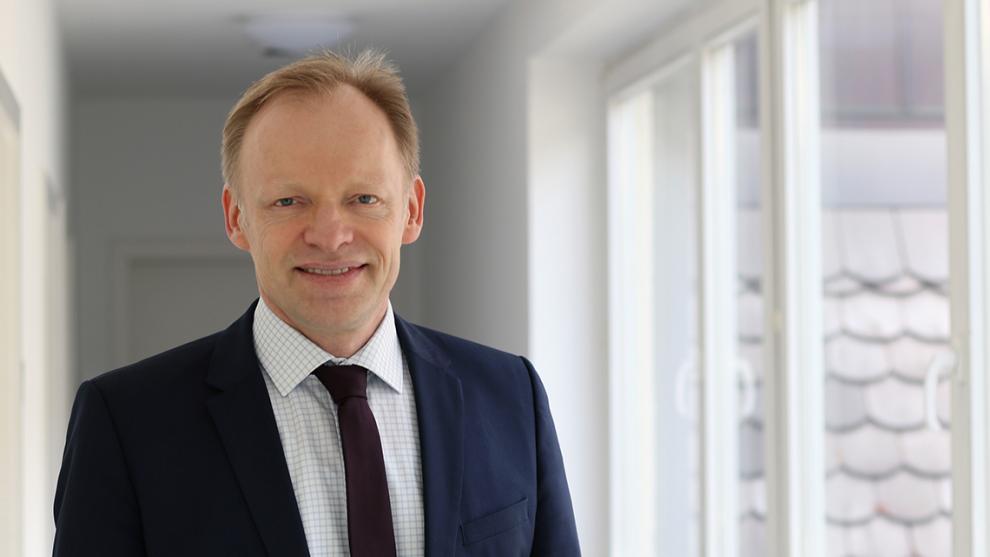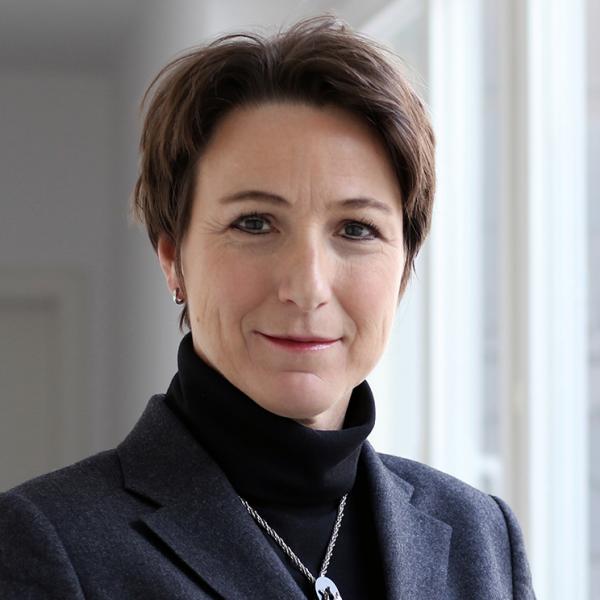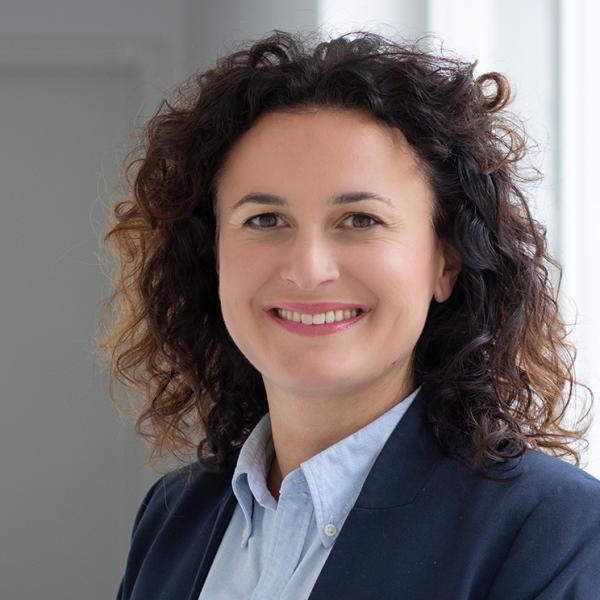ifo Media Center
The ifo Institute invites you to participate in the discussion of interesting economic topics via the Internet. In our ifo Media Center a whole series of remarkable events are available and can be viewed in full length. We also record selected speeches and presentations given by employees or at events and make them available in our Media Center.

Business Climate in the German Automotive Industry on the Upswing
The business climate in Germany’s automotive industry brightened in March. The indicator rose to -5.8 points, up from -9.9 points* in February. “The German automotive industry seems to have finally emerged from its economic low in the second half of 2023 and is looking to the future with more confidence,” says Anita Wölfl, a specialist at the ifo Center for Industrial Organization and New Technologies.
Inflation Continues to Decline in Germany
ifo price expectations in Germany fell to 14.3 points in March, down from 15.0 points in February. This is their lowest level since March 2021. “Inflation is still on the decline and should fall below 2% this summer. From a German perspective, there’s no reason why the ECB shouldn’t cut interest rates soon,” says Timo Wollmershäuser, Head of Forecasts at ifo.
Business Climate in German Retail Improves Markedly Before Easter
The ifo Business Climate in retail brightened noticeably in March. The indicator for assessments of the current business situation rose to -7.3 points, up from -18.1 points* in February. There was a clear improvement in business expectations, too. “The pessimism that has been such a feature of recent times is receding. Business in the run-up to Easter has apparently brought a ray of hope for many retailers,” says ifo expert Patrick Höppner.
ifo Business Climate Eastern Germany Blossoms with the Start of Spring (March 2024)
The ifo Business Climate Index Eastern Germany rose considerably in March. The barometer of business sentiment for the regional economy in eastern Germany climbed to 90.0 points, up from 88.6 points in February. The eastern German companies surveyed provided assessments of their business situation that were somewhat better than the previous month, and they also raised their business expectations slightly.
Headwinds from Germany and Abroad: Institutes Revise Forecast Significantly Downwards
According to Germany’s five leading economic research institutes, the country’s economy shows cyclical and structural weaknesses. In their spring report, they revised their GDP forecast for the current year significantly downward to 0.1%. In the recent fall report, the figure was still 1.3%. Expectations for the coming year are almost unchanged at 1.4% (previously 1.5%). However, the level of economic activity will then be over 30 billion euros lower due to the current weak phase.
Eastern Germany Hit Harder by the Skills Shortage
Companies in eastern Germany are more affected by the shortage of skilled workers than in the rest of the country. This is confirmed by new results from the ifo Business Survey of 9,000 companies throughout Germany, 1,700 of which are based in former East Germany. In the first quarter of 2024, 42.1% of companies in eastern Germany stated that their business was affected by a lack of skilled personnel; the figure for Germany as a whole was 36.3%.
ifo Employment Barometer Rises (March 2024)
Companies in Germany are again looking to hire more staff. The ifo Employment Barometer rose to 96.3 points in March, up from 94.9 points in February. “Companies are currently more willing to hire because they are better able to assess the economic conditions. Skilled workers continue to be in demand,” says Klaus Wohlrabe, Head of Surveys at ifo.
Institut ifo : nette progression des prévisions en matière d’exportations
Le moral des exportateurs allemands s'est considérablement amélioré. L’indice ifo des prévisions en matière d’exportations est passé de – 7,0 points en février à – 1,4 point en mars. « Le commerce mondial devrait repartir à la hausse au cours des prochains mois », déclare Klaus Wohlrabe, directeur des enquêtes conjoncturelles de l'Institut ifo. « Les exportateurs allemands espèrent pouvoir en profiter. »
ifo Export Expectations Rise Considerably (March 2024)
Sentiment in the German export industry is markedly brighter. The ifo Export Expectations rose to -1.4 points in March, up from -7.0 points in February. “World trade ought to pick up in the months ahead,” says Klaus Wohlrabe, Head of Surveys at ifo, “and German exporters hope to benefit from this.”
L’indice ifo du climat des affaires à nouveau en hausse
Le moral des entreprises s'est nettement amélioré, comme le montre la progression de l'indice ifo du climat des affaires, de 85,7 points en février à 87,8 points[1] en mars. Les prévisions des entreprises s'avèrent beaucoup moins pessimistes. L'évaluation de la situation actuelle affiche elle aussi une amélioration. Une lueur d'espoir se profile à l’horizon pour l’économie allemande.
ifo Business Climate Index rises (March 2024)
Sentiment in German companies has improved noticeably. The ifo Business Climate Index rose to 87.8 points in March, up from 85.7 points in February. In particular, companies’ expectations turned much less pessimistic. Assessments of the current business situation also improved. The German economy glimpses light on the horizon.
ifo President Fuest: Europe Must Invest in Its Own Strength
Europeans should do more for their own economic strength. This is ifo President Clemens Fuest’s recommendation in view of the elections in Europe and the United States. “If Europe’s security and prosperity depend primarily on the outcome of US presidential elections, then we have made some fundamental mistakes,” he writes in a new ifo Viewpoint. Achieving greater strength should be the central theme of the European elections in June 2024 and the policy of the next European Commission. This includes defending the rules-based international order with partners wherever possible.
Germany’s Shortage of Skilled Workers Eases Slightly
The shortage of skilled workers among companies in Germany has eased somewhat. According to the survey, 36.3% of firms are currently suffering from a shortage of qualified workers, down from 38.7% in October 2023. A year ago, it was 43.6%. “The weakening economy is reducing demand for skilled workers in the short term,” says ifo expert Klaus Wohlrabe, “but the fundamental problem is here to stay.”
Working from Home Could Reduce Office Space Requirements in Germany by 12%
Working from home reduces the need for office space in Germany. This is the result of a new study conducted by the ifo Institute together with real estate consultancy Colliers for the major cities of Berlin, Hamburg, Munich, Cologne, Frankfurt am Main, Stuttgart, and Düsseldorf. “Regular working from home has become the new normal for around 25% of employees and 69% of companies. This is leading to a decline in demand for office space, particularly among large companies and in industries where working from home is more commonplace. By 2030, it’s likely that the need for office space will have decreased by 12%. This would correspond to a drop in demand of around 11.5 million square meters in the seven major cities. The new world of work is triggering structural change in the office market,” says ifo researcher Simon Krause, coauthor of the study.
Plusieurs économistes appellent à renforcer la coopération européenne en matière d'énergie
Plusieurs économistes de différents pays ont demandé à l'UE de considérer la crise énergétique mondiale résultant de l'invasion de l'Ukraine par la Russie comme un signal d'alarme et de favoriser une meilleure coopération en Europe. « Le passage aux sources d'énergie non fossiles peut non seulement réduire la dépendance stratégique, mais aussi –s'il est correctement effectué – baisser le prix de l'électricité et aider l'UE et ses États membres à atteindre leurs objectifs climatiques. La poursuite de l'intégration du marché européen de l'électricité et du gaz est indispensable pour mieux compenser les pénuries régionales », affirment-ils dans un document rédigé pour le réseau de recherche EconPol Europe.
Economic Researchers Advocate Greater Energy Cooperation in Europe
Economic researchers from various countries have called on the EU to view the energy crisis following the Russian attack on Ukraine as a wake-up call and to strive for better cooperation in Europe. “Not only can switching to non-fossil energy sources reduce strategic dependency: if done correctly, it can also lower electricity prices and help the EU and its member states achieve their climate targets. Further integration of the European electricity markets and gas grids is essential in order to better balance out regional shortages,” they write in a paper for the EconPol Europe research network.
Business Climate in German Retail Remains Gloomy
The ifo Business Climate in Germany’s retail deteriorated in February for the third consecutive month, finds the latest ifo Institute survey. The indicator for assessments of the current business situation fell to -18 points, down from -15.2 points* in January. Expectations improved only slightly, with the indicator remaining at the low level of -36.7 points. “The economic environment remains very challenging for retailers,” says ifo expert Patrick Höppner. “Consumers are holding back on shopping, which is putting a strain on retailers’ businesses.”
Sentiment in German Residential Construction Reaches Another All-Time Low
The ifo Business Climate in residential construction has reached a new low. It fell to -61.9 points in February, down from -60.7 points in January. More than half of the construction companies surveyed are dissatisfied with the current situation. Expectations are also stuck at rock bottom. “At present there isn’t a single ray of hope on the horizon for residential construction,” says Klaus Wohlrabe, Head of Surveys at ifo. “Orders continue to be canceled. At the same time, building permits for apartments are in free fall.”
More Poverty Risk Leads to More Votes for Right-Wing Extremists
Right-wing extremists gain votes in regions where the risk of poverty is growing, according to recent ifo Institute calculations. In Germany, if the proportion of households below the poverty line increases by 1 percentage point, the share of votes for far-right parties in federal elections increases by 0.5 percentage points. “This is statistically and politically significant,” says ifo researcher Florian Dorn. Between 1998 and 2017, the proportion of poorer households rose by 1.9 percentage points. The poverty line is defined as 60% of the median income.
L'augmentation du risque de pauvreté entraîne la progression de l'extrême-droite
L'augmentation du risque de pauvreté dans une région entraîne la progression de l'extrême-droite. Ce constat est le résultat de calculs réalisés par l'Institut ifo. Lorsque la part des ménages vivant sous le seuil de pauvreté augmente d'un point de pourcentage, le score des partis d'extrême-droite augmente de 0,5 % lors des élections fédérales allemandes. « Un tel résultat est significatif aussi bien d'un point de vue statistique que politique », déclare Florian Dorn, chercheur à l'Institut ifo, sachant que la part des ménages les plus pauvres a augmenté de 1,9 % entre 1998 et 2017. Le seuil de pauvreté est fixé ici à 60 % du revenu médian.




